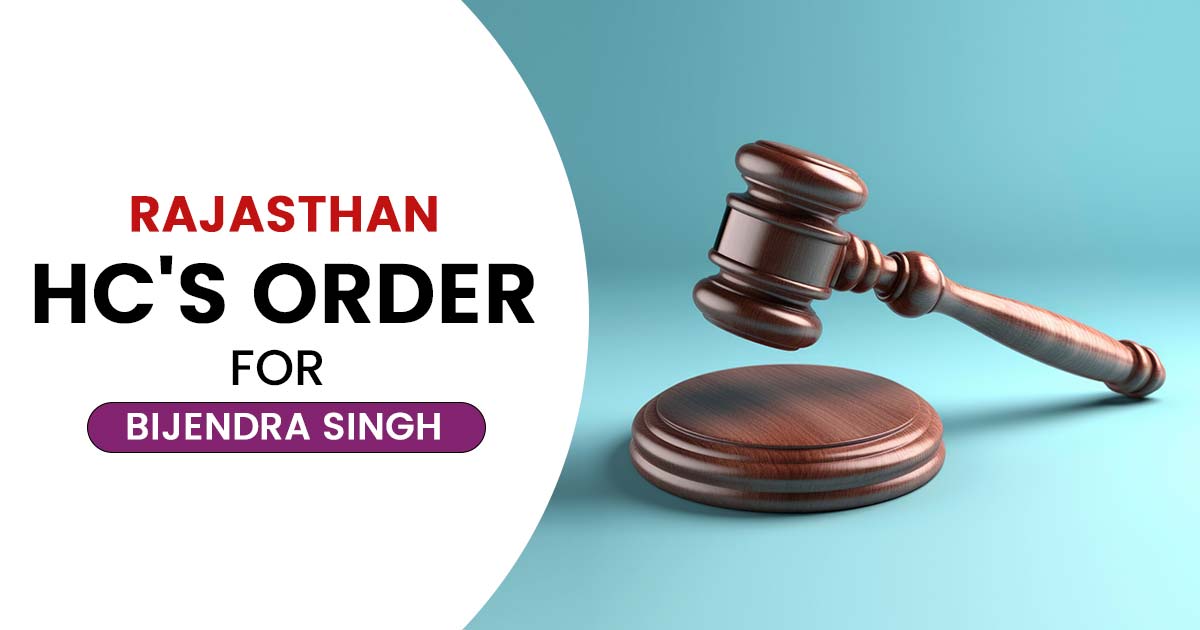
The Rajasthan High Court set aside the order that was passed against the petitioner on the charge that the income levied to tax for the AY 2015-16 has escaped the assessment under the purview of section 147 of the Income Tax Act 1961.
Bijendra Singh, the taxpayer, contended that the show cause notice was premised on the assumption that his cash transactions totalled around Rs.50,00,000, leading to the invocation of the extended period of limitation. Subsequently, it was verified that the actual transactions amounted to only Rs.33,62,000.
The taxpayer asserted that the notice issued against them lacked jurisdiction due to limitation and argued that the proceedings initiated were allegedly based on unexplained money deposits. The notice, issued under Section 148A of the Income Tax Act, 1961, was deemed baseless during the proceedings, particularly concerning the show cause notice under Section 69A read with Section 115BBE of the Income Tax Act, 1961.
The taxpayer contended that, apart from Section 148A of the Income Tax Act, 1961, the authorities had no authority to invoke these powers. They received a notice under Section 148A(b) of the Act, which referred to information attached to the notice.
Expressing dissatisfaction with the order issued under Section 148A(d) of the Income Tax Act, 1961, the petitioner filed a writ petition. Following this notice, the assessment continued, and on March 6, 2023, after considering the submissions, the authority raised concerns about the cash deposit of Rs. 33,62,000 in the bank, questioning why it should not be considered as unexplained money under Section 69A read with Section 115BBE of the Income Tax Act, 1961.
The revenue argued that once the assessment order was issued, the petitioner should pursue the available alternative remedy. Despite this, it was asserted that the petitioner failed to provide a satisfactory explanation for cash transactions totalling Rs.15,00,000.
The revenue contended that due process had been followed, asserting that there were no grounds for interference with the proceeding.
The Rajasthan High Court’s two-member bench, consisting of Ashutosh Kumar and Arun Bhansali, observed that the authority, in passing the order under Section 148A(d) of the Income Tax Act of 1961, mechanically rejected the plea and proceeded to issue a notice under Section 148 of the Act.
Subsequently, an attempt was made to convert the proceedings into a notice under Section 69A read with Section 115BBE of the Income Tax Act of 1961, an action deemed impermissible.
Once the notice under Section 148A of the Income Tax Act of 1961 was found to be time-barred, the bench determined that no further proceedings could be initiated under any provision of the Income Tax Act of 1961.
The purported exercise of jurisdiction following the notice under Section 148A of the Income Tax Act of 1961 could not be initiated or continued. The bench rejected the revenue’s claims and set aside the order against the appellant, granting the writ petition filed by the petitioner.
Siddharth Ranka and Shivangi Mewal represented the assessee, while Anuroop Singhi, N.S. Bhati and Mr. Aditya Khandelwal represented the respondent.
| Case Title | Bijendra Singh Vs CIT |
| Order No. | D.B. Civil Writ Petition No. 6852/2022 |
| Date | 04.01.2024 |
| Assessee By | Mr Priyesh Kasliwal, Mr Rahul Pandya |
| Counsel For Respondent | Mr Anuroop Singhi, Mr N.S. Bhati, Mr Aditya Khandelwal |
| Rajasthan HC | Read Order |









